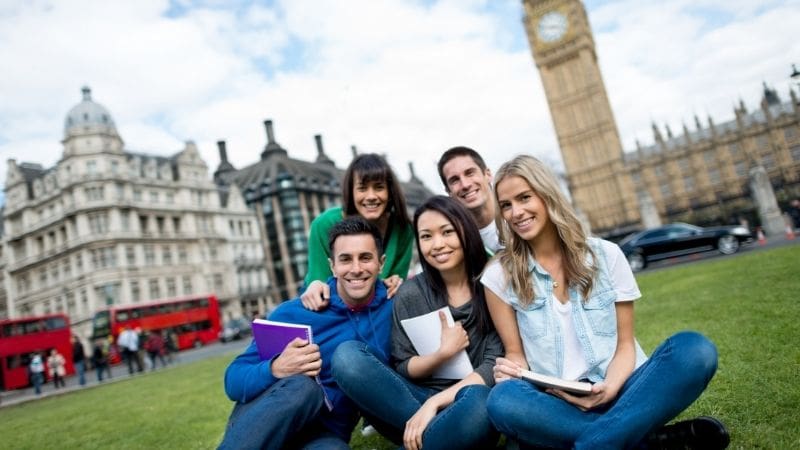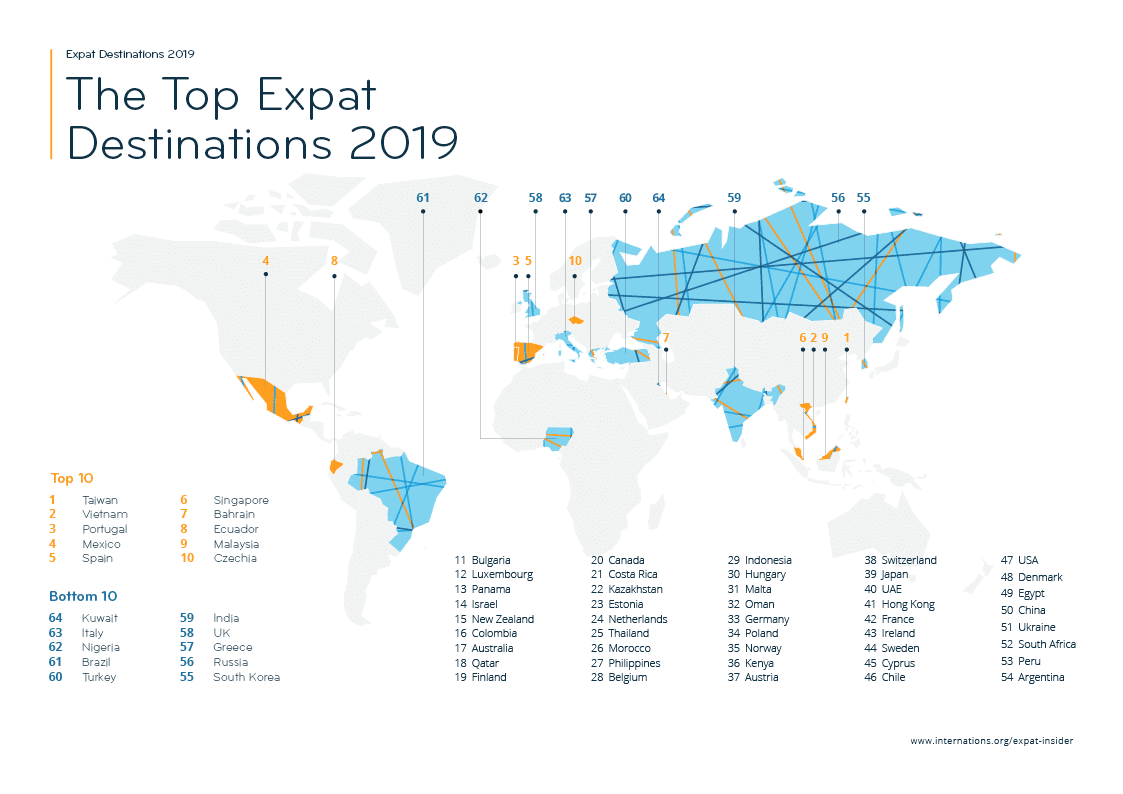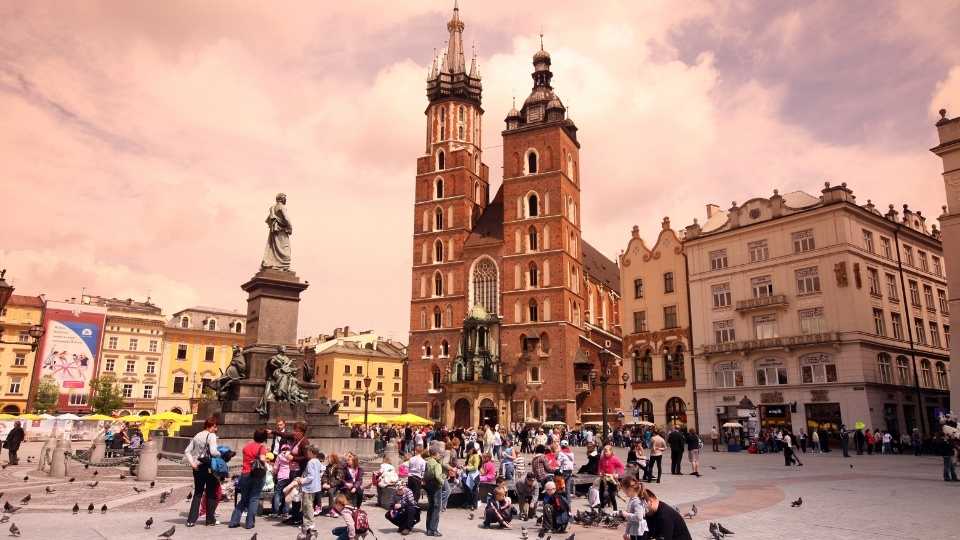ExPat Destinations
From Foreigner to Local: Cultural Adaptation Explained for Expats


As an expat, I know firsthand the challenges of adapting to a new culture. It’s like being transported to a whole different world, where everything feels unfamiliar and overwhelming.
But fear not! In this article, I will guide you through the process of overcoming culture shock, understanding local customs and etiquette, making local friends, avoiding cultural do’s and don’ts, and building a local network.
So strap in fellow expats, because we’re about to embark on an exciting journey towards becoming locals in our new home!
Key Takeaways
- Immersing in the local culture through activities, events, and engaging with locals is crucial for overcoming culture shock and adapting to a new culture.
- Understanding and respecting local customs and etiquette, such as dressing appropriately, using customary greetings, and observing table manners, is essential for building relationships and gaining acceptance in the local community.
- Strategies for making local friends include observing how locals interact, showing genuine interest in the local culture and traditions, participating in local events and festivals, and adapting to cultural norms and values.
- To avoid cultural faux pas, expats should research local customs and traditions, adhere to the local dress code, learn appropriate ways to greet someone, be mindful of personal space norms, and show respect for the local culture.
The Process of Overcoming Culture Shock
Overcoming culture shock can be a challenging but essential part of adjusting to life in a new country as an expat. When I first moved abroad, I found myself feeling overwhelmed and disoriented by the unfamiliar customs and ways of living. Everything seemed different, from the food to the language to the social norms.
However, I realized that it was important for me to embrace this experience and learn how to adapt. One strategy that helped me overcome culture shock was immersing myself in the local culture by trying new activities, attending cultural events, and engaging with locals. This allowed me to gain a deeper understanding of their way of life and helped me feel more connected to my new surroundings.
Additionally, seeking support from other expats who had successfully navigated culture shock provided invaluable guidance and reassurance during this process. It’s important to remember that overcoming culture shock takes time and patience – being kind to yourself along the way is crucial.
Understanding Local Customs and Etiquette
To navigate your new surroundings successfully, it’s essential to familiarize yourself with the customs and etiquette of the local culture. Understanding these aspects will not only help you blend in but also show respect towards the locals.


Here are some key points to keep in mind:
-
Dress appropriately: Following the local dress code demonstrates your understanding and appreciation of their cultural norms.
-
Greetings: Learn the customary greetings, whether it’s a handshake, bow, or kiss on the cheek. This simple gesture can go a long way in establishing rapport.
-
Table manners: Be mindful of how locals eat and behave during meals. For example, using chopsticks properly or not discussing sensitive topics at the table.
Strategies for Making Local Friends
Understanding the local customs and etiquette is crucial when it comes to making friends in a new community. As an expat, I have learned that building relationships with locals requires more than just language skills. It requires adapting to their cultural norms and values.
One strategy that has helped me is observing how locals interact with each other and following their lead. For example, if they greet each other with a kiss on the cheek, I do the same. Additionally, showing genuine interest in their culture and traditions can go a long way in establishing connections. By participating in local events and festivals, I have been able to meet like-minded individuals who share my enthusiasm for embracing new experiences.
Ultimately, by respecting and understanding local customs, we can create meaningful friendships across cultures.


Now that we understand the importance of local customs and etiquette in making friends, let’s explore some tips for avoiding cultural do’s and don’ts.
Tips for Avoiding Cultural Do’s and Don’ts
When it comes to avoiding cultural do’s and don’ts, you can start by researching the local customs and traditions before interacting with the community. This will help you navigate social situations with confidence and respect.
Here are some tips to keep in mind:
- Dress appropriately: Understanding the local dress code shows that you value their culture.
- Learn greetings: Greeting someone properly is important in many cultures, so take the time to learn the appropriate way to say hello.
- Respect personal space: Different cultures have different norms when it comes to personal space, so be mindful of this.
Building a Local Network
Building a local network involves connecting with individuals in the community through social events and networking opportunities. It is essential for expats to establish a strong support system, especially when adapting to a new culture. By actively participating in local activities and attending gatherings, you can meet like-minded individuals who can offer guidance and friendship.
Building relationships with locals not only helps you understand the customs and traditions of your new home but also provides a sense of belonging. Engaging in conversations, showing genuine interest in others, and offering assistance whenever possible are effective ways to build connections within the community. Through these meaningful interactions, you will gain valuable insights into the local culture while forming lasting friendships.
These connections will prove invaluable as you navigate cultural differences in daily life.
Transition: Once you have built a strong local network, it becomes easier to navigate the cultural differences that arise in your daily interactions.


Navigating Cultural Differences in Daily Life
After successfully building a local network in my new home, it was time to navigate the cultural differences that I encountered on a daily basis. This aspect of cultural adaptation proved to be both challenging and rewarding.
Here are some strategies that helped me effectively navigate these differences:
-
Observation: I found that observing the locals in their daily activities provided invaluable insights into their customs and behaviors.
-
Flexibility: Being open-minded and adaptable allowed me to embrace new experiences and adjust my own behavior accordingly.
-
Respect: Respecting the local customs and etiquette showed my willingness to integrate into the community.
By employing these strategies, I was able to foster understanding, build relationships, and truly immerse myself in the local culture.
Now, let’s explore how adapting to local traditions and celebrations played a crucial role in my cultural adaptation journey.


Adapting to Local Traditions and Celebrations
To fully immerse yourself in the local culture, embracing and participating in local traditions and celebrations is essential. As an expat, I’ve learned that these events offer a unique insight into the values, beliefs, and history of the community.
Attending festivals or joining in traditional activities allows you to connect with locals on a deeper level and gain a better understanding of their way of life. It also shows your respect for their customs and can help foster positive relationships.
Whether it’s joining a lively parade or taking part in religious ceremonies, being open-minded and respectful is key. By actively engaging in local traditions and celebrations, you not only enrich your own experience but also contribute to the vibrant tapestry of cultural exchange within the community.
Frequently Asked Questions
How Long Does It Typically Take to Overcome Culture Shock?
It typically takes time and effort to overcome culture shock. Adapting to a new culture involves understanding local customs and etiquette, making local friends, avoiding cultural faux pas, and building a local network.
Are There Any Specific Strategies for Making Friends With Locals Who May Not Speak the Same Language?
Making friends with locals who don’t speak the same language can be challenging, but there are strategies to overcome this hurdle. By using non-verbal communication, learning basic phrases, and showing genuine interest, meaningful connections can be formed.
Is It Common for Expats to Experience Homesickness During the Cultural Adaptation Process?
Yes, it is common for expats to experience homesickness during cultural adaptation. It can be challenging being away from familiar surroundings and loved ones. However, with time and support, homesickness can be overcome.
What Are Some Common Cultural Do’s and Don’ts That Expats Should Be Aware Of?
Some common cultural do’s and don’ts for expats to be aware of include: respecting personal space, greeting with a handshake or bow, avoiding sensitive topics, and adapting to local customs like removing shoes indoors.


How Can Expats Find Opportunities to Immerse Themselves in the Local Community and Build a Strong Local Network?
To find opportunities to immerse myself in the local community and build a strong network, I can join local clubs or organizations, attend cultural events, volunteer, and make an effort to connect with locals through language exchanges or social media groups.



Hello there! I’m Gabriel Holmes, a 41-year-old travel enthusiast with a degree in Marketing from the Indiana University Northwest. I’m the voice behind TopWorldTravels.com, where I channel my passion for exploration into engaging travel narratives and invaluable tips.
My journey into the world of travel is a personal odyssey, fueled by a desire to uncover the beauty and diversity our planet has to offer. Over the years, I’ve wandered through countless destinations, immersing myself in various cultures and capturing the essence of each experience through my writing. From the bustling streets of metropolitan cities to the serene landscapes off the beaten path, I’ve made it my mission to share the gems I discover along the way.
Armed with my marketing background from IUN, I approach travel with a strategic and analytical mindset. This expertise allows me to curate content on TopWorldTravels.com that resonates with a diverse audience. Whether you’re a budget backpacker or a luxury traveler, my goal is to provide insights that cater to all tastes and preferences.
Beyond the typical tourist spots, I’m committed to uncovering the authentic heart of each destination. My writings not only offer practical advice on packing and navigating unfamiliar terrains but also emphasize the importance of responsible tourism. I believe in leaving a positive impact on the places I visit, promoting sustainable practices that preserve the environment and support local communities.
Join me on my virtual expeditions at TopWorldTravels.com, where my words weave a tapestry of discovery, wanderlust, and cultural appreciation. Travel, for me, is more than a leisure activity; it’s a transformative journey that enriches the soul and broadens horizons. Let TopWorldTravels.com be your compass to a world of unforgettable experiences, as we embark on this vicarious adventure together.
ExPat Destinations
Discover Affordable Romance: Top Inexpensive Weekend Getaways for Couples in Upstate New York


Upstate New York, with its scenic landscapes, serene lakes, and majestic mountains, offers a plethora of options for couples seeking a romantic retreat without breaking the bank. Whether you’re drawn to the tranquil waters of the Finger Lakes or the rugged beauty of the Adirondacks, there are numerous affordable weekend getaways that promise a memorable experience for you and your significant other.
Experience the Charm of the Finger Lakes
The Finger Lakes region is renowned for its natural beauty and wine culture, making it an ideal destination for couples. Here, you can indulge in wine tasting tours at some of the most prestigious wineries in the area without spending a fortune. Many wineries offer complimentary or low-cost tastings, allowing you to savor the rich flavors of the region’s wines.
Apart from wine tours, the Finger Lakes are home to numerous state parks and trails that offer breathtaking views and outdoor activities such as hiking, biking, and boating. Watkins Glen State Park, with its stunning waterfalls and gorges, is a must-visit for nature-loving couples. Accommodations in the area range from cozy bed and breakfasts to affordable cabin rentals, ensuring there’s something to fit every budget.
Adventures in the Adirondacks
For couples who thrive on adventure and outdoor activities, the Adirondack Mountains provide a rugged backdrop for a romantic getaway. The region is dotted with serene lakes, dense forests, and high peaks, offering endless opportunities for exploration and bonding.
You can embark on a scenic hike to one of the many summits for panoramic views of the surrounding area or enjoy a quiet canoe ride on Mirror Lake. The Adirondacks are also home to charming small towns like Lake Placid, where you can find affordable lodging and dining options. In the evening, nothing beats sitting by a campfire under the stars, wrapped in the arms of your loved one.
Retreats That Won’t Break the Bank
Finding a romantic retreat in Upstate New York that’s both affordable and memorable is easier than you might think. Many resorts and inns offer special packages for couples, including accommodations, meals, and activities at a fraction of the usual cost. These packages often include extras like champagne on arrival or a private dinner for two, adding a touch of luxury to your getaway.
Another budget-friendly option is to rent a vacation home or cabin. This not only gives you more privacy and space but also allows you to save money by cooking your own meals. With the abundance of fresh, local produce available in Upstate New York, preparing a romantic dinner together can be a fun and intimate experience.
Maximizing Your Experience
To make the most of your inexpensive romantic weekend getaway in Upstate New York, consider visiting during the off-peak seasons. Spring and fall offer mild weather, fewer crowds, and lower prices, while still providing the scenic beauty and activities that the region is known for.
Additionally, many attractions and activities in Upstate New York are free or have a minimal cost. Exploring the quaint towns, visiting local farmers’ markets, or simply enjoying the natural beauty of the area can be incredibly romantic and won’t add to your expenses.
Creating Lasting Memories
An inexpensive romantic weekend getaway in Upstate New York isn’t just about saving money; it’s about creating lasting memories with your partner. Whether it’s sharing a bottle of wine overlooking the Finger Lakes, hiking to a breathtaking viewpoint in the Adirondacks, or enjoying a quiet moment together by a campfire, these experiences can strengthen your bond and bring you closer together.
In conclusion, Upstate New York offers a wealth of options for couples looking for an affordable romantic retreat. From the scenic beauty of the Finger Lakes and the Adirondacks to the charming towns and affordable accommodations, there’s something for every couple to enjoy. By planning ahead and taking advantage of the many budget-friendly options available, you can experience a romantic getaway that’s both memorable and affordable.



Hello there! I’m Gabriel Holmes, a 41-year-old travel enthusiast with a degree in Marketing from the Indiana University Northwest. I’m the voice behind TopWorldTravels.com, where I channel my passion for exploration into engaging travel narratives and invaluable tips.
My journey into the world of travel is a personal odyssey, fueled by a desire to uncover the beauty and diversity our planet has to offer. Over the years, I’ve wandered through countless destinations, immersing myself in various cultures and capturing the essence of each experience through my writing. From the bustling streets of metropolitan cities to the serene landscapes off the beaten path, I’ve made it my mission to share the gems I discover along the way.
Armed with my marketing background from IUN, I approach travel with a strategic and analytical mindset. This expertise allows me to curate content on TopWorldTravels.com that resonates with a diverse audience. Whether you’re a budget backpacker or a luxury traveler, my goal is to provide insights that cater to all tastes and preferences.
Beyond the typical tourist spots, I’m committed to uncovering the authentic heart of each destination. My writings not only offer practical advice on packing and navigating unfamiliar terrains but also emphasize the importance of responsible tourism. I believe in leaving a positive impact on the places I visit, promoting sustainable practices that preserve the environment and support local communities.
Join me on my virtual expeditions at TopWorldTravels.com, where my words weave a tapestry of discovery, wanderlust, and cultural appreciation. Travel, for me, is more than a leisure activity; it’s a transformative journey that enriches the soul and broadens horizons. Let TopWorldTravels.com be your compass to a world of unforgettable experiences, as we embark on this vicarious adventure together.
ExPat Destinations
Top Family-Friendly All-Inclusive Resorts: Where Vacation Meets Unforgettable Activities & Amenities


When planning a family vacation, finding the perfect destination that caters to the needs and desires of every family member can be a challenge. This is where all-inclusive resorts come into play, offering a seamless and stress-free vacation experience. The best all-inclusive resorts for families are those that combine comfort, entertainment, and convenience to create unforgettable memories. In this article, we will guide you through some of the top family-friendly all-inclusive resorts, highlighting their unique activities and amenities that make them stand out.
Why Choose an All-Inclusive Resort for Your Family Vacation?
All-inclusive resorts are the epitome of hassle-free vacations. These resorts offer a unique package that includes lodging, meals, drinks, and often a wide range of activities—all for one price. This means that families can enjoy their vacation without worrying about the logistics of meal planning or scheduling activities. Additionally, many all-inclusive resorts are designed with families in mind, offering amenities and services that cater to both children and adults. From kids’ clubs and water parks to spa services and gourmet dining, these resorts ensure that every family member has an enjoyable and relaxing experience.
Key Features of the Best All-Inclusive Resorts for Families
The best all-inclusive resorts for families are characterized by several key features that ensure a memorable and enjoyable vacation experience. These include:
– Family-Friendly Accommodations: Spacious rooms or suites designed to comfortably fit families of all sizes, with amenities like mini-fridges, cribs, and connecting rooms.
– Diverse Dining Options: A variety of dining venues that cater to all tastes and dietary needs, including kid-friendly menus, buffet-style meals, and fine dining options.
– Engaging Activities for All Ages: A wide range of activities that keep both kids and adults entertained, such as water sports, arts and crafts, cooking classes, and evening entertainment.
– Dedicated Kids’ Clubs: Professionally supervised clubs offering age-appropriate activities for children, allowing parents some alone time to relax and unwind.
– Access to Amenities: Unlimited use of the resort’s facilities, including pools, beaches, fitness centers, and recreational areas.
Spotlight on Top Family-Friendly All-Inclusive Resorts
While there are many all-inclusive resorts to choose from, a few stand out for their exceptional service, amenities, and family-oriented activities. Here are some top picks:
– Resort A: Nestled on a pristine beach, this resort offers a magical experience with its themed water park, kids’ adventure club, and family suites equipped with bunk beds and gaming consoles. Dining options range from casual beachside grills to gourmet restaurants.
– Resort B: Located in a lush tropical setting, this resort features an extensive outdoor adventure park, complete with zip lines and a lazy river. Families can enjoy spacious villa accommodations and a variety of international cuisine at several on-site restaurants.
– Resort C: This luxury resort combines elegance with family fun, offering a kids-only pool, a teen lounge, and babysitting services. Adults can indulge in spa treatments or golf, while the whole family can enjoy the nightly live entertainment.
Planning Your Stay at an All-Inclusive Resort
To ensure the best experience at an all-inclusive resort, consider the following tips when planning your family vacation:
– Research and Compare: Look into various resorts to compare their features, amenities, and activities. Read reviews from other families to get an idea of their experiences.
– Check for Deals and Packages: Many resorts offer special deals or packages for families, which can include discounts on accommodations, complimentary activities, or free stays for children.
– Consider the Location: Choose a resort that is conveniently located near attractions or natural landmarks you wish to explore as a family.
– Inquire About Childcare Services: If you’re planning to enjoy some adult-only time, make sure the resort offers reliable childcare services or kids’ clubs.
Making Memories That Last a Lifetime
Choosing the right all-inclusive resort for your family vacation can lead to an unforgettable experience filled with fun, relaxation, and cherished moments. By selecting a resort that offers a wide range of activities and amenities tailored to families, you can ensure that every family member has an enjoyable and memorable stay. The best all-inclusive resorts for families are those that understand the unique needs of traveling with children and go above and beyond to meet those needs, creating a perfect backdrop for your family’s adventures.
As you embark on your next family vacation, remember that the key to a successful trip lies in finding a destination that offers something for everyone. With the right all-inclusive resort, you can look forward to a hassle-free vacation where the focus is solely on spending quality time together and making lifelong memories.



Hello there! I’m Gabriel Holmes, a 41-year-old travel enthusiast with a degree in Marketing from the Indiana University Northwest. I’m the voice behind TopWorldTravels.com, where I channel my passion for exploration into engaging travel narratives and invaluable tips.
My journey into the world of travel is a personal odyssey, fueled by a desire to uncover the beauty and diversity our planet has to offer. Over the years, I’ve wandered through countless destinations, immersing myself in various cultures and capturing the essence of each experience through my writing. From the bustling streets of metropolitan cities to the serene landscapes off the beaten path, I’ve made it my mission to share the gems I discover along the way.
Armed with my marketing background from IUN, I approach travel with a strategic and analytical mindset. This expertise allows me to curate content on TopWorldTravels.com that resonates with a diverse audience. Whether you’re a budget backpacker or a luxury traveler, my goal is to provide insights that cater to all tastes and preferences.
Beyond the typical tourist spots, I’m committed to uncovering the authentic heart of each destination. My writings not only offer practical advice on packing and navigating unfamiliar terrains but also emphasize the importance of responsible tourism. I believe in leaving a positive impact on the places I visit, promoting sustainable practices that preserve the environment and support local communities.
Join me on my virtual expeditions at TopWorldTravels.com, where my words weave a tapestry of discovery, wanderlust, and cultural appreciation. Travel, for me, is more than a leisure activity; it’s a transformative journey that enriches the soul and broadens horizons. Let TopWorldTravels.com be your compass to a world of unforgettable experiences, as we embark on this vicarious adventure together.
ExPat Destinations
Discover the Weirdest Natural Places on Earth: From Socotra Island to Blood Falls


The planet we call home is a tapestry of wonder, filled with natural phenomena that defy explanation and places so unique, they seem to belong to another world. Among these, some stand out for their sheer oddity and the awe they inspire. Let’s embark on a journey to some of the weirdest natural places on earth, from the alien landscapes of Socotra Island to the eerie beauty of Blood Falls.
Socotra Island: The Alien World on Earth
Nestled in the Arabian Sea, Socotra Island is often described as the most alien-looking place on Earth. This remote island is home to flora and fauna found nowhere else in the world. The Dragon Blood Tree, with its umbrella-shaped canopy and red sap, is perhaps the most famous of Socotra’s natural wonders. The island’s isolation for millions of years has created a unique ecosystem, making it a living museum of evolutionary changes. Visiting Socotra is like stepping into a lost world, where the landscapes seem to whisper secrets of the ancient earth.
Salar de Uyuni: The Mirror of the Sky
In the heart of the Bolivian Altiplano lies Salar de Uyuni, the largest salt flat in the world. During the rainy season, a thin layer of water transforms this vast white expanse into a perfect mirror, reflecting the sky so accurately that it becomes impossible to tell where the earth ends and the sky begins. This natural marvel not only offers breathtaking views but also plays a crucial role in calibrating satellites due to its extensive and flat surface. Salar de Uyuni is a testament to the planet’s ability to create beauty in the most unexpected places.
Fly Geyser: A Man-Made Wonder Turned Natural Phenomenon
Although initially created by accident during a well drilling in 1964, Fly Geyser in Nevada has evolved into a stunning natural spectacle. Over the years, minerals have accumulated, forming colorful mounds that continue to grow and change shapes. The geyser spews hot water up to five feet in the air, creating a surreal landscape that seems more at home on an alien planet than in the Nevada desert. The vibrant colors and dynamic nature of Fly Geyser make it a captivating sight and a reminder of nature’s power to reclaim and transform.
Catatumbo Lightning: The Everlasting Storm
At the mouth of the Catatumbo River in Venezuela, an extraordinary meteorological phenomenon occurs. Known as the Catatumbo Lightning, this storm produces an almost continuous display of lightning, up to 280 times per hour, and can last for as long as 10 hours a night. This natural light show has been a beacon for sailors for centuries, earning it the nickname “Lighthouse of Maracaibo.” The unique conditions that create this phenomenon are still not fully understood, making Catatumbo Lightning a mysterious and mesmerizing spectacle.
Blood Falls: Antarctica’s Red Waterfall
In the stark, icy landscape of Antarctica’s Taylor Glacier, a striking anomaly exists. Blood Falls, a five-story waterfall, flows from the glacier’s surface, staining the snow and ice with a deep red hue. This eerie sight is the result of iron-rich water, trapped beneath the glacier for over a million years, oxidizing upon contact with air. The presence of ancient microbial life in the water adds another layer of intrigue to Blood Falls, challenging our understanding of life in extreme environments.
Moeraki Boulders: New Zealand’s Spherical Stones
Scattered along Koekohe Beach on New Zealand’s Otago coast, the Moeraki Boulders are a curious sight. These large, spherical stones appear almost too perfect to be natural. Yet, they are the result of sedimentary rock accumulation and erosion over millions of years. With some boulders measuring up to three meters in diameter, they seem like relics from a giant’s game. The Moeraki Boulders are not only a geological wonder but also a cultural treasure, steeped in Maori legend.
Our planet is brimming with places that challenge our perceptions and inspire wonder. From the alien landscapes of Socotra Island to the geological oddities of the Moeraki Boulders, the weirdest natural places on earth remind us of the beauty and mystery that surrounds us. These destinations are not just travel spots; they are vivid reminders of Earth’s diversity and the endless surprises it holds. As we continue to uncover these natural wonders, we are reminded of the importance of preserving our planet’s incredible biodiversity for future generations to explore and marvel at.



Hello there! I’m Gabriel Holmes, a 41-year-old travel enthusiast with a degree in Marketing from the Indiana University Northwest. I’m the voice behind TopWorldTravels.com, where I channel my passion for exploration into engaging travel narratives and invaluable tips.
My journey into the world of travel is a personal odyssey, fueled by a desire to uncover the beauty and diversity our planet has to offer. Over the years, I’ve wandered through countless destinations, immersing myself in various cultures and capturing the essence of each experience through my writing. From the bustling streets of metropolitan cities to the serene landscapes off the beaten path, I’ve made it my mission to share the gems I discover along the way.
Armed with my marketing background from IUN, I approach travel with a strategic and analytical mindset. This expertise allows me to curate content on TopWorldTravels.com that resonates with a diverse audience. Whether you’re a budget backpacker or a luxury traveler, my goal is to provide insights that cater to all tastes and preferences.
Beyond the typical tourist spots, I’m committed to uncovering the authentic heart of each destination. My writings not only offer practical advice on packing and navigating unfamiliar terrains but also emphasize the importance of responsible tourism. I believe in leaving a positive impact on the places I visit, promoting sustainable practices that preserve the environment and support local communities.
Join me on my virtual expeditions at TopWorldTravels.com, where my words weave a tapestry of discovery, wanderlust, and cultural appreciation. Travel, for me, is more than a leisure activity; it’s a transformative journey that enriches the soul and broadens horizons. Let TopWorldTravels.com be your compass to a world of unforgettable experiences, as we embark on this vicarious adventure together.
-



 Traveling Solo6 months ago
Traveling Solo6 months agoAdventures Through the Lens: a Solo Traveler’s Photography Guide
-



 Traveling Solo5 months ago
Traveling Solo5 months agoSolo Travel: Mastering the Art of Getting Around
-



 Traveling Solo5 months ago
Traveling Solo5 months agoThe Exciting Chronicles of Solo Travel Experiences
-



 ExPat Destinations8 months ago
ExPat Destinations8 months agoBuilding Connections: the Importance of Expat Communities
-



 Senior Travel8 months ago
Senior Travel8 months agoVoyage Through Majestic Canadian Waters
-



 Traveling Solo7 months ago
Traveling Solo7 months agoUnpack the Perfect Journey: Mastering Your Packing Essentials
-



 ExPat Destinations6 months ago
ExPat Destinations6 months agoMaking It Official: Understanding Visa and Residency for Expats
-



 Traveling Solo6 months ago
Traveling Solo6 months agoClimate Compliant: Packing for Different Climates






